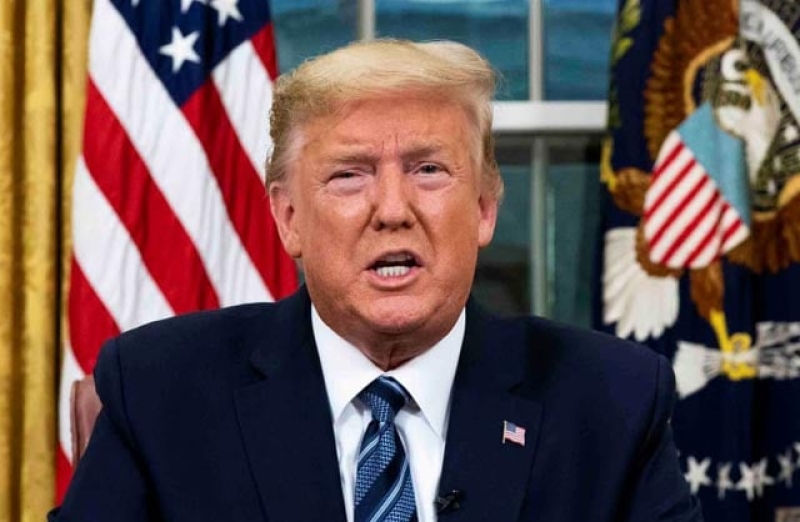- India Sees 9% Drop in Foreign Tourists as Bangladesh Visits Plunge |
- Dhaka Urges Restraint in Pakistan-Afghan War |
- Guterres Urges Action on Safe Migration Pact |
- OpenAI Raises $110B in Amazon-Led Funding |
- Puppet show enchants Children as Boi Mela comes alive on day 2 |
U.S. Imposes 37% Tariff on Bangladeshi Products

In line with products from various countries around the world, U.S. President Donald Trump has raised the tariff on Bangladeshi products from an average of 15% to 37%.
On Wednesday (April 2), at 4:00 PM local time in Washington (2:00 AM Bangladesh time), Trump announced the new tariff during a press conference at the White House.
Under this new tariff, products from India will be subject to 26%, Pakistan 29%, China 34%, the European Union 20%, Myanmar 44%, Laos 48%, Madagascar 47%, Vietnam 46%, Sri Lanka 44%, Taiwan 32%, Japan 24%, South Korea 25%, Thailand 36%, Switzerland 31%, Indonesia 32%, Malaysia 24%, Cambodia 49%, the United Kingdom 10%, South Africa 30%, Brazil 10%, Singapore 10%, Israel 17%, the Philippines 17%, Chile 10%, Australia 10%, Turkey 10%, and Colombia 10%.
In his remarks, Trump referred to the day as America's "Economic Independence Day" and assured the press that there would be "very good news." His statement was met with applause from the audience.
Trump described the new tariff as part of America's economic independence, adding that the U.S. had been waiting for this day for a long time. He also noted that sometimes in trade, "friends can be worse than enemies."
He announced a 25% tariff on all foreign cars imported into the U.S., saying that more than 80% of cars produced in South Korea are sold in that country, and over 90% of cars sold in Japan are made there. U.S. cars are sold in those countries in very small quantities.
Referring to Ford, an American company that sells very few cars in other countries, Trump said that a 25% tariff would be imposed on motor vehicles produced in any other country, effective starting midnight.
Trump called this new tariff announcement a reflection of the "America First" policy, adding that today would be remembered as the "rebirth" of American industry and a day to "make America wealthy again." He pointed out that for decades, the U.S. had faced trade barriers.
Trump also mentioned that many countries have imposed heavy tariffs on U.S. products, and in some cases, non-tariff barriers have created even worse conditions. He accused various countries of intellectual property theft and other restrictions.
It is worth noting that the U.S. is one of Bangladesh's main two export markets for ready-made garments, with an annual export value of approximately $8.4 billion. However, last year, exports to the U.S. stood at $7.34 billion. Economists are concerned that the imposition of these high new tariffs by the U.S. will have a significant negative impact on Bangladesh’s garment exports.

